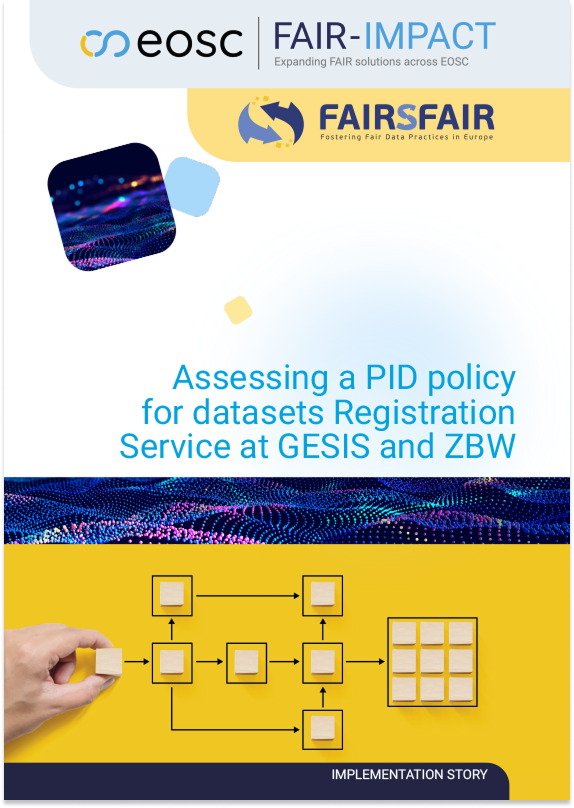Assessing a PID policy for datasets Registration Service at GESIS and ZBW
The persistent identification of research outputs is part of good research data management practice and is central to the FAIR Principles and the vision of the European Open Science Cloud (EOSC). There are many types of persistent identifiers (PIDs) currently being used to identify data and other kinds of research outputs but also different actors involved in the creation of outputs and the organisations that employ them or fund their work.
To foster harmonisation on the use of different persistent identifiers, there is a need to define and implement research data and/or PID policies. FAIR-IMPACT’s Creating EOSC compliant Persistent Identifier (PID) policies support action1 aimed to help successful applicants to complete self-assessments with regard to their PID policy readiness through the use of FAIRCORE4EOSC’s Compliance Assessment Toolkit (CAT) service2 which strives to encode, record, and query compliance with the EOSC PID policy. The support action did not focus on any specific PID type but rather provided general best practice guidelines on the creation and assessment of PID policies. This FAIR Implementation Story outlines the experience of GESIS and ZBW in relation to their self-assessment.
Authors:
Janete Saldanha Bach, GESIS – Leibniz-Institute for the Social Sciences, Germany
Fidan Limani, ZBW – Leibniz Information Centre for Economics, Germany
Editors:
Lassi Lager, CSC and FAIR-IMPACT
Rene van Horik, DANS and FAIR-IMPACT
